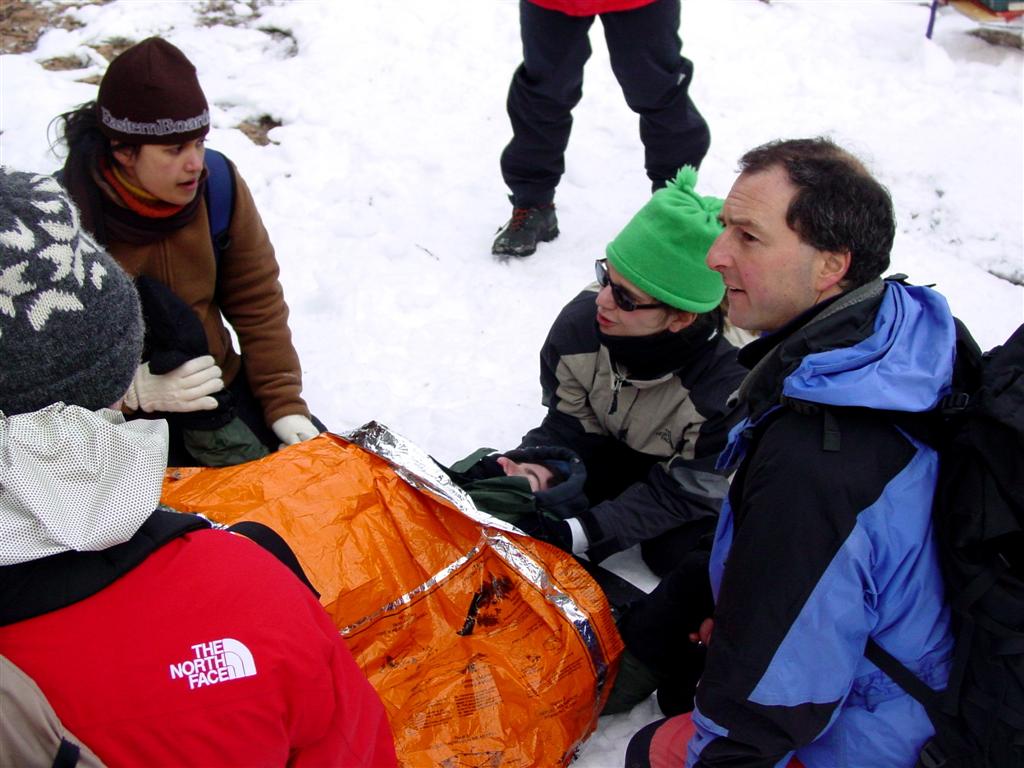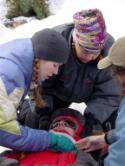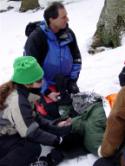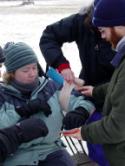Wilderness Medicine Optional Enrichment Elective for First and Second Year Medical Students
General Info & History
The aim of the UMass Wilderness and Environmental Medicine Optional Enrichment Elective is to teach first and second year medical students to identify and manage common injuries and illnesses in wilderness and recreational environments. Though this course covers many topics typically taught in Wilderness First Aid (WFA) courses, it does not seek to certify students. Rather, the course is designed to complement the UMass Chan Medical School curriculum by focusing on pathophysiology, anatomy and other basic sciences pertinent to a physician’s knowledge base. There are three goals of the course: first, to give students a practical knowledge base for personal trips and traveling. Second, to provide interesting and relevant clinical corollaries to the pre-clinical training. Third, to give students a theoretical and practical knowledge framework onto which they can add during their continued medical training.
This course meets all requirements for Optional Enrichment Electives set forth by the Office of Medical Education at UMass. Participation is optional, but students who complete the course receive credit on their transcript. Further information on Optional Enrichment Electives can be found here: http://www.umassmed.edu/ome/electives/opt_electives.aspx .
In addition, the course is fully sponsored by the UMass Department of Emergency Medicine. Students who participate in later have the opportunity to create a longitudinal experience by participating in the fourth year medical student elective, and will be given preferential admission to that elective.
Instructors
This course is coordinated by a fourth year medical student, often with the assistance of a third year student. Instructors are fourth year medical students, residents, and faculty attending physicians. The faculty advisor is Francis Renzi, MD. The course was founded in the 2004 by Andrew Monte, MD and Matthew Logalbo, MD.
Teaching methods
The course consists of two classroom-based sessions and three outdoor sessions spread over the academic year. Care is taken to schedule sessions at times when students do not have other academic activities. Classroom sessions take place during the week and consist of approximately 1.5 hours of lecture/didactic time and 1.5 hours of small group hands-on skill stations. Outdoor sessions are scheduled for weekends. The first two outdoor sessions consist of roughly 4.5 hours of small group teaching sessions and scenarios. The final session is a large mock-rescue in which the class must work together to assess, stabilize, and transport multiple injured patients.
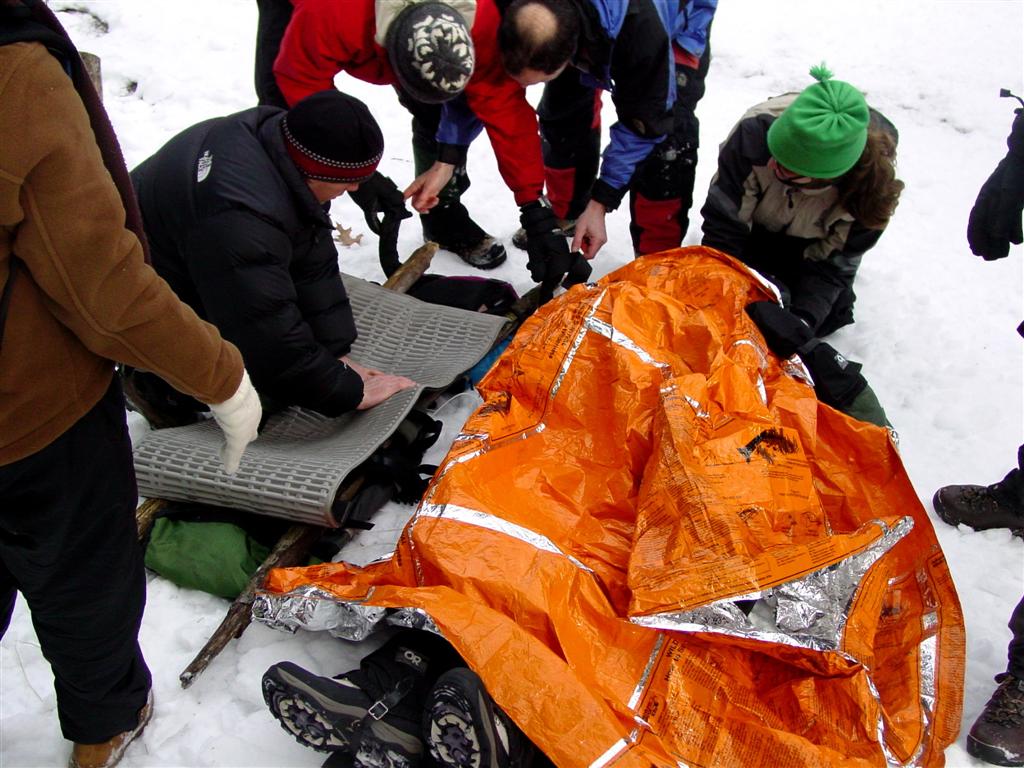
Small group case-based simulation is the primary method of instruction. There is growing evidence showing the effectiveness of education by simulating medical scenarios. This method has been described as more enjoyable for participants, increasing their retention of knowledge and serving as a first opportunity to see how their clinical decisions affect patients with minimal risk. Multiple studies have found that simulation education also increases confidence in performing skills.
Locations
Past outdoor sessions have been taught at:
Mount Monadnock – Jaffrey, NH
Jordan Pond – Shrewsbury, MA
Mount Wachusett – Princeton, MA
Burncoat Pond – Leicester, MA
Curriculum
Topics to be covered include (but are not limited to):
● Introduction to wilderness medicine
● Primary survey (ABCs & planning)
● First aid kits, documentation & prevention
● Basic wound care
● Litter formation
● Secondary survey (head to toe survey)
● Life threatening injuries: shock, pneumo or hemothorax, flail chest, surgical abdomen, impaled object, eviscerated organs
● Major orthopedic injuries: C-Spine injuries and clearing c-spines in the field, femur fractures & traction splinting, pelvic fractures and stabilization
● Extremity injuries: fractures and dislocations of the extremities
● High altitude medicine
● Envenomations
● Exposure to the environment: cold weather, heat related illness (heat exhaustion/stroke, hyperthermia, hyponatremia), dehydration
● Traveler’s illness & GI complaints
● Near drowning
Schedule & Requirements for Credit
Session 1: Weeknight classroom session usually held in September or October
Session 2: Weekend out door session usually held in October or November
Session 3: Weekend out door session usually held in December
Session 4: Weeknight classroom session usually held in February
Session 5: Weekend out door session usually held in April or May
Students must attend four out of the five sessions to receive credit.
